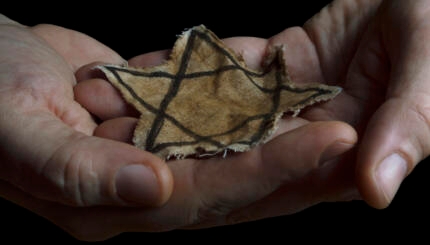-Tony Judt argues, “We have attached the memory of the Holocaust so firmly to the defense of a single country—Israel—that we are in danger of provincializing its moral significance…But it is not just about Germans and it is not just about Jews….The problem of evil —of totalitarian evil, or genocidal evil —is a universal problem.� (The New York Review of Books)
-The Israel Museum opens two exhibitions of “orphaned” paintings and artifacts looking for owners. (The Jerusalem Post)
-Display of looted art. (Associated Press)
-A new book causes Michael Berenbaum to make “a plea. Treat your parents’ documents as potentially precious. When in doubt, don’t throw them out, but ask for help. You may have a historical treasure in your hands. …For a historical understanding of the Holocaust to be more complete, more whole, we must document the lives lived by the victims — not only the moments of crisis, but the daily life.â€? (Jewish Journal)
-David Marwell, director of New York’s Museum of Jewish Heritage, and Michael Berenbaum, who served on the board of the U.S. Holocaust Memorial Museum, and others discuss the difficulty of introducing children to the Holocaust. (The Jewish Week)
-And Susan Dominus interviews a variety of experts on the same topic. (New York Times)
-French President Nicolas Sarkozy has proposed that primary school Holocaust education include having each child identify with a Holocaust victim. The idea stirs much opposition. (Haaretz)
-Barbara Wind talks about the challenge to educators in combating Holocaust fatigue. (NJ Jewish News)
-The new Holocaust film The Counterfeiters “asks disturbing questions more commonly found in the survivor literature of Primo Levi or Bruno Bettelheimâ€? — notably, how much accommodation of evil is permitted in order to stay alive? (The Village Voice)
-And an interview with the Auschwitz inmate-turned-counterfeiter, whose story the film is based on. (NJ Jewish Standard)
-A new book considers whether Reszo Kasztner was a hero of the Holocaust or a Nazi collaborator. (Forward)


